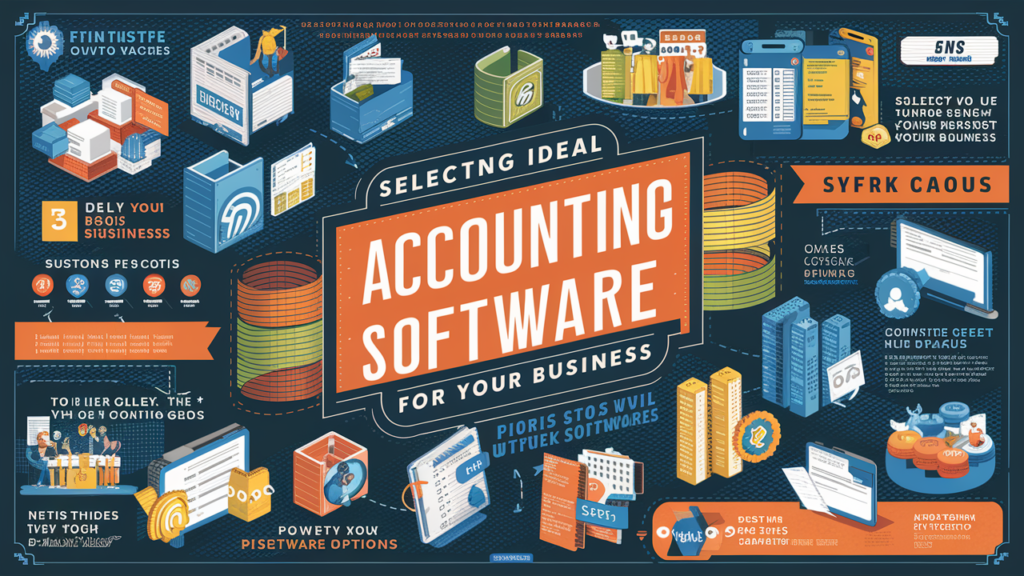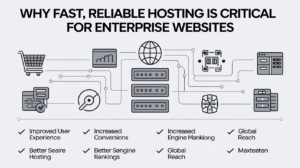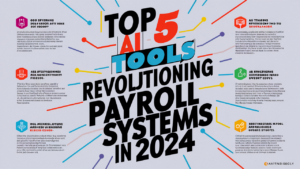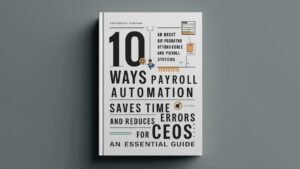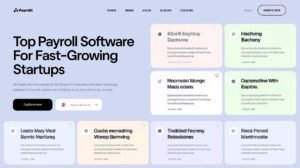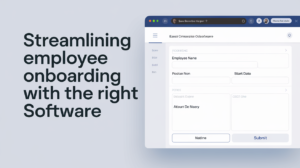Selecting the best accounting software for your business is crucial for effective financial management. With an abundance of options available, finding the perfect match can feel overwhelming. This guide will help you navigate the competitive landscape, providing actionable insights to identify the ideal accounting software tailored to your business needs.
1. Understanding the Importance of Accounting Software 🧾
Accounting software plays a pivotal role in streamlining financial processes like tracking expenses, managing invoices, and ensuring compliance. It’s essential for:
- Maintaining accurate records
- Improving efficiency
- Making informed business decisions
The right software can automate routine tasks, save time, and reduce human error.
2. Key Features to Look For in Accounting Software 🔍
When choosing accounting software, consider the following key features:
- Invoicing and Billing: Automates billing processes and tracks timely payments.
- Expense Tracking: Monitors and categorizes business expenses for clarity.
- Reporting: Generates financial statements and insightful reports.
- Payroll Management: Handles employee payroll, including tax calculations.
- Bank Reconciliation: Syncs with bank accounts for seamless transaction reconciliation.
- Multi-User Access: Allows role-based permissions for multiple users.
- Tax Compliance: Ensures compliance with local tax laws and automates filings.
3. Types of Accounting Software: Cloud vs. On-Premise 🌐💾
Understanding the type of accounting software suitable for your business is critical:
- Cloud-Based Accounting Software: Accessible from anywhere, offers automatic updates and backups.
- On-Premise Accounting Software: Installed locally, giving more control over data but requiring manual updates.
💡 Tip: Cloud-based solutions are typically preferred for their flexibility and scalability, especially for small and medium-sized businesses.
4. Evaluating Top Accounting Software Options 📊
Here are some of the top-rated accounting software options in 2024:
- QuickBooks: User-friendly and feature-rich, ideal for small to medium businesses.
- Xero: Powerful accounting features with extensive integrations.
- FreshBooks: Focused on simplifying invoicing and expense tracking, great for freelancers.
- Sage Business Cloud Accounting: Comprehensive accounting tools for growing businesses.
- Wave: Free software with essential features for startups and micro-businesses.
5. Cost Considerations 💰
Accounting software pricing varies widely. Consider:
- Free options (like Wave) for basic needs.
- Subscription models that offer additional features and scalability.
Evaluate the features you need and make sure the software aligns with your budget and business growth.
6. Integration Capabilities with Other Business Tools 🔗
Choose software that integrates with other business tools, such as:
- CRM systems
- eCommerce platforms
- Payroll software
Integration helps streamline workflows and ensures data consistency across all applications.
7. User Experience and Support Services 🛠️
A user-friendly interface is crucial for efficient software usage. Look for:
- Excellent customer support
- Comprehensive tutorials
- An active user community for troubleshooting
This ensures smooth adoption and maximizes the tool’s capabilities.
8. Security and Data Protection 🔒
Security is paramount when handling financial data. Ensure the software offers:
- Data encryption
- Two-factor authentication
- Regular security audits
Protecting your financial data should always be a top priority.
9. Steps to Choose the Best Accounting Software for Your Business 🧠
Here’s a step-by-step guide to help you make the best choice:
- Assess Your Business Needs: Identify specific accounting needs like inventory management, payroll, etc.
- Research and Shortlist: Narrow down options based on features, pricing, and reviews.
- Request Demos and Trials: Take advantage of free trials for hands-on experience.
- Check Integration Options: Ensure compatibility with existing business tools.
- Evaluate Support Services: Check for customer support and resources.
- Consider the Cost: Align the cost with your budget and business needs.
- Read Reviews: Seek feedback from other businesses for insights.
10. Conclusion 📈
Choosing the best accounting software is a significant decision that impacts your business’s financial efficiency and growth. By evaluating key features, top options, and aligning them with your specific needs, you can make an informed choice.
Take the time to research and select a solution that delivers maximum value, enhances functionality, and supports your financial management efforts.

